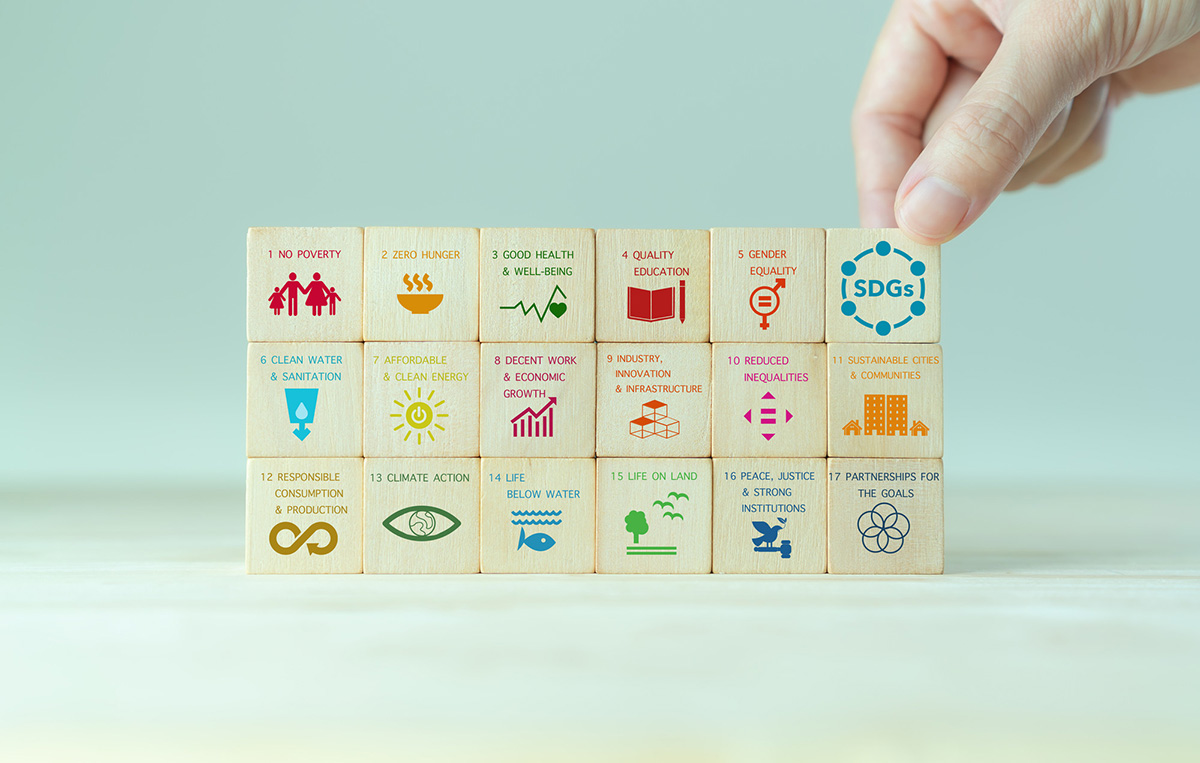We are off track on arguably the most important priorities facing our world and humankind: the UN‘s Sustainable Development Goals (SDGs).
One thing is clear: the public and private sectors must both dedicate substantial expertise and resources if we are to have a fighting chance of reaching the vision set out in the Agenda 2030, which spans everything from poverty reduction to climate change, education, peace and security — areas pivotal to our human existence.
Enter public–private partnerships (PPPs). These are part of the standard vernacular in the international development sphere, and typically evoke images of large-scale infrastructure initiatives that transform cities by streamlining the management and distribution of basic goods, such as water. Some PPPs cost billions of dollars, but can help millions of people.
In Laos, I had the pleasure of witnessing the impact of a PPP that is transforming the lives of rural women. Villagers in three northern provinces (Oudomxay, Luang Namtha and Phongsaly) have benefited from training, and the provision of materials and equipment that have bolstered their livelihoods and elevated their positions in their respective families.
This project has not only helped rural families expand their operations, but connected them to larger handicraft supply chains with capacity to export.
Through an ongoing initiative funded by the Enhanced Integrated Framework, the Laotian Ministry of Industry and Commerce has spearheaded an inspiring project which leverages a for-profit social business called Ock Pop Tok (OPT). Headquartered in picturesque Luang Prabang, OPT trains and equips rural female weavers to produce higher quality, more valuable handicrafts for sale locally and internationally.
With greater knowledge, coupled with better equipment and improved techniques, 129 rural female weavers are now earning an average 46% more for their work. Some of the villages have increased their income by more than 100%.
Training these women at their homes has required extensive time and effort. But through this hard work, there has been a big shift in the power dynamic of rural households, with empowered women earning more than their husbands and garnering greater respect. The weavers, together with OPT, are also helping preserve and promote Laotian heritage by showcasing traditional patterns, fabrics and capturing cultural significance through improved handicrafts.
Critics may question supporting a development initiative that features a profit-making element. The weavers serve as reliable producers of base products, which OPT purchases and then upscales and sells online and in its brick-and-mortar shops. Reliable supply for OPT’s wider sales network allows for reliable — and increased — revenue for the women involved. OPT as a social enterprise also provides government co-financing for the project, which further benefits the weavers and their families.
Furthermore, with the expertise and knowledge of OPT, there is sustainability driven by market orientation. This was demonstrated during the Covid-19 pandemic when tourism was truncated and markets shrank significantly. OPT pivoted its focus to doing fairs in the large hotels in the capital, Vientiane. And they brought promising young female weavers from the northern villages to the capital to learn how to engage directly with buyers.
A key ingredient to the success of this PPP in Laos was the Ministry of Industry and Commerce’s decentralised approach — empowering local government to help OPT in the selection of the most suitable weavers to partner with. The ministry engaged local chambers of commerce and local elected officials to support outreach efforts and bridge the connection between OPT as the lead firm and the rural weavers. The strategic foresight of the ministry in leveraging local ownership along with lead firms serves as an excellent best practice for creating effective PPPs.
Speaking of the importance of leveraging private finance, innovation and capabilities towards achieving the SDGs, deputy minister of industry and commerce Manothong Vongsay highlighted that “by engaging private-led firms around their core business activities, we hope to achieve lasting, scalable development results, driven by business interests in sustainable and profitable operations. And we intend to replicate this PPP model [in] projects throughout the country.”
PPPs are a vital part of our collective effort to achieve a sustainable, harmonious balance between people and planet, both locally and at a global level. The viewpoint from this project in northern Laos is one of hope, one where no one is left behind, women are empowered, livelihoods greatly improved and economic resilience of disadvantaged families strengthened.
Hopefully, this model can be replicated far and wide, delivering similar, life-changing results at local level to help realise our shared global development aspirations.
David Daepp is regional portfolio manager with the United Nations Office for Project Services, which serves as trust fund manager for the Enhanced Integrated Framework. Based in Bangkok, he manages a regional portfolio of 13 least-developed countries, including Laos.
This article first appeared in the October/November 2023 print edition of fDi Intelligence
Credit:Source link



